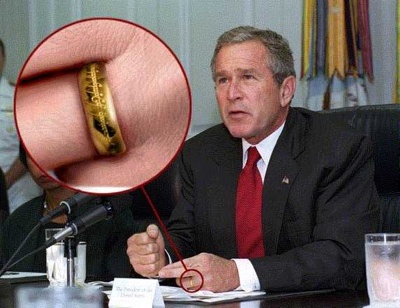Oct 23, 2006- United Press International: Coup against Maliki reported in the making
Iraqi army officers are reportedly planning to stage a military coup with U.S. help to oust the government of Prime Minister Nouri al-Maliki.
Cairo-based Iraqi and Arab sources said Monday several officers visited Washington recently for talks with U.S. officials on plans for replacing Maliki’s administration by a “national salvation” government with the mission to re-establish security and stability in Iraq.
One Iraqi source told United Press International that the Iraqi army officers’ visit to the United States was aimed at coordinating the military coup in case the efforts of Maliki’s government to restore order reached a dead end.
He said among the prominent officers were the deputy chief of staff, a Muslim Shiite, the intelligence chief, a Sunni, and the commander of the air force, a Kurd. It is believed the three would constitute the nucleus of the next government after the army takes over power.
The proposed plan, according to the source, stipulates that the new Iraqi army, with the assistance of U.S. forces, will take control of power, suspend the constitution, dissolve parliament and form a new government. The military will also take direct control of the various provinces and the administration after imposing a state of emergency.
An Arab source also told UPI that certain Arab countries were informed of the plan and requested to offer their help in convincing the former leaders of the deposed Baath Party regime residing in their countries to refrain from obstructing the move and stop violence perpetrated by the party in Iraq. In return, they will be invited to participate in the government at a later stage.
Washington is becoming increasingly impatient with the failure of Maliki’s government in quelling sectarian violence threatening to plunge Iraq in an all-out civil war.
One possibly related thing I’ve noticed being the US for the past week is that much of the Bush administration’s comments in Iraq revolves around the meme that the Iraqis must now stop the civil war, that things are in the Iraqis hands, etc. Well obviously they are not, things are out of control, and this is just a pre- midterm election attempt to avoid responsibility for the mess that is Iraq. A responsibility, it must be emphasized, rests largely on the current administration, even if there are many other forces at play in Iraq.
I don’t think it could have been predicted three years ago that things would be as bad as to make this kind of reporting from Iraq routine:
OUTSIDE BALAD, Iraq — At midweek, Shiite Interior Ministry commandos and their Shiite militia allies cruised the four-lane hardtop outside the besieged city of Balad, trying to stave off retaliation for a deadly four-day rampage in which they had all but emptied Balad of Sunnis.
Sunni insurgents pouring in to take that revenge patrolled the same highway, driving battered white pickups and minivans, their guns stashed out of sight. Affecting casualness, more Sunni men gathered on rooftops or clustered on the reed-lined edge of the highway, keeping an eye on the Shiite forces and the few frightened civilians who dared to travel the highway past Balad.
What brought this Tigris River city north of Baghdad to this state of siege was a series of events that have displayed in miniature the factors drawing the entire country into a sectarian bloodbath: Retaliatory violence between Sunnis and Shiites has soared to its highest level of the war, increasingly forcing moderates on both sides to look to armed extremists for protection.
The Shiite-led government’s security forces, trained by the United States, proved immediately incapable of dealing with the sectarian violence in Balad, or, in many cases, abetted it, residents and police said.
More than 20,000 U.S. troops are based within 15 miles of Balad, but, uncertain how to respond, they hesitated, waiting for Iraqi government forces to step up, according to residents, police and U.S. military officials.
And all that was left holding Balad, and Iraq, together — the desire for peace and normality still held by the great majority of Iraqis, and the generations of intermarriage and neighborliness between ordinary Shiite and Sunni Muslims — was ripping apart.
I can understand in this context how a return to military dictatorship may seem like a tempting move. I remember Daniel Pipes was advocating that “Iraq needs a strongman” immediately after the invasion. Well I suppose Iraq does if it is going to be a docile client state like Egypt. But at this point, it’s probably already too late to install a military dictator (not to mention this would presumably involve the help of US troops.)

